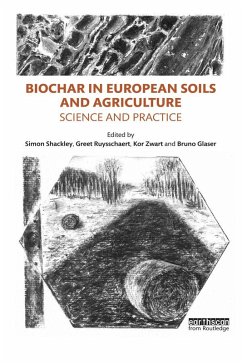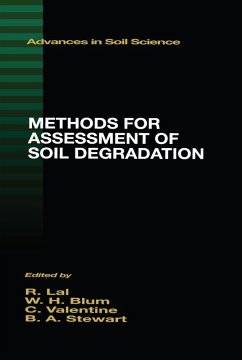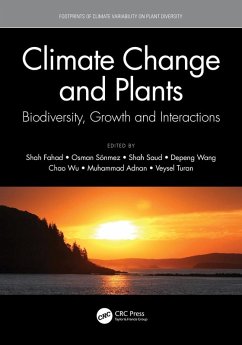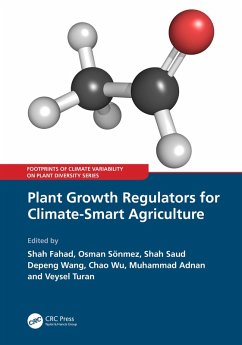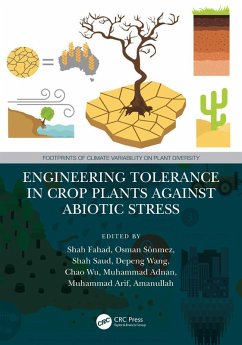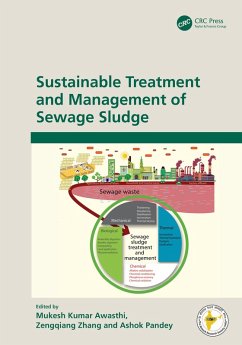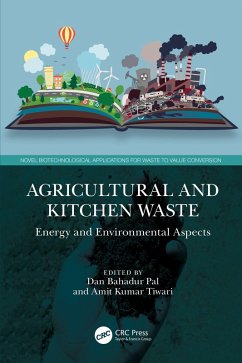
Sustainable Soil and Land Management and Climate Change (eBook, PDF)
Versandkostenfrei!
Sofort per Download lieferbar
52,95 €
inkl. MwSt.
Weitere Ausgaben:

PAYBACK Punkte
26 °P sammeln!
The third volume of Sustainable Soil and Land Management and Climate Change presents a complete overview of plant soil interactions in a climate affected by greenhouse gas emissions and organic carbon. It presents approaches and managements strategies for the stabilization of soil organic matter.The latest in the respected Footprints of Climate Variability on Plant Diversity series, this book enhances the reader's knowledge of the preservation of organic matter through microbial approaches as well as through soil and plant interactions. Written by teams of specialist scientists, it presents re...
The third volume of Sustainable Soil and Land Management and Climate Change presents a complete overview of plant soil interactions in a climate affected by greenhouse gas emissions and organic carbon. It presents approaches and managements strategies for the stabilization of soil organic matter.
The latest in the respected Footprints of Climate Variability on Plant Diversity series, this book enhances the reader's knowledge of the preservation of organic matter through microbial approaches as well as through soil and plant interactions. Written by teams of specialist scientists, it presents research outcomes, practical applications and future challenges for this important field.
Features:
This book is written for students of agronomy, soil science and the environmental sciences as well as researchers interested in management technologies to improve soil fertility.
The latest in the respected Footprints of Climate Variability on Plant Diversity series, this book enhances the reader's knowledge of the preservation of organic matter through microbial approaches as well as through soil and plant interactions. Written by teams of specialist scientists, it presents research outcomes, practical applications and future challenges for this important field.
Features:
- Presents microbial tactics for the alleviation of potentially toxic elements in agricultural soils and for reclaiming saline soil.
- Provides an overview of scientific investigations into greenhouse gas emissions.
- Outlines priming techniques developed in response to a changing climate.
This book is written for students of agronomy, soil science and the environmental sciences as well as researchers interested in management technologies to improve soil fertility.
Dieser Download kann aus rechtlichen Gründen nur mit Rechnungsadresse in A, B, BG, CY, CZ, D, DK, EW, E, FIN, F, GR, HR, H, IRL, I, LT, L, LR, M, NL, PL, P, R, S, SLO, SK ausgeliefert werden.






